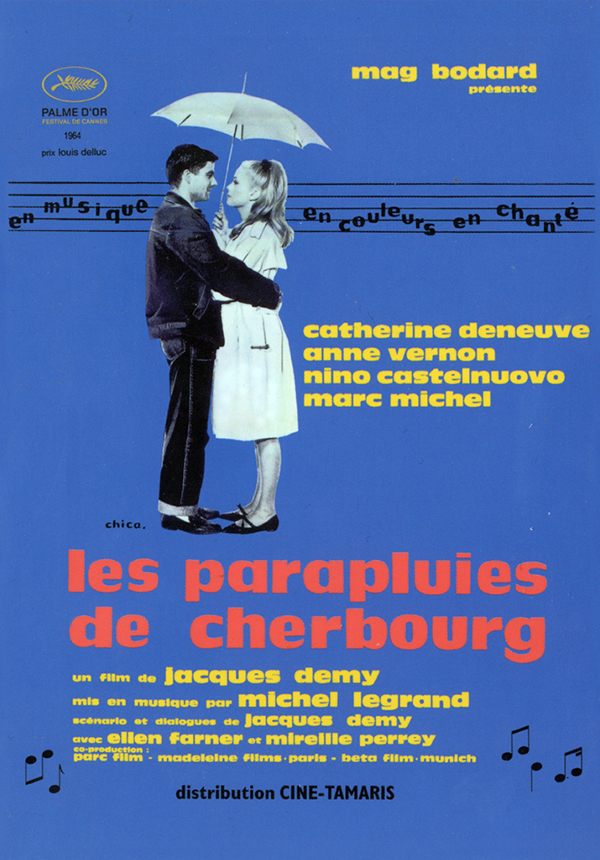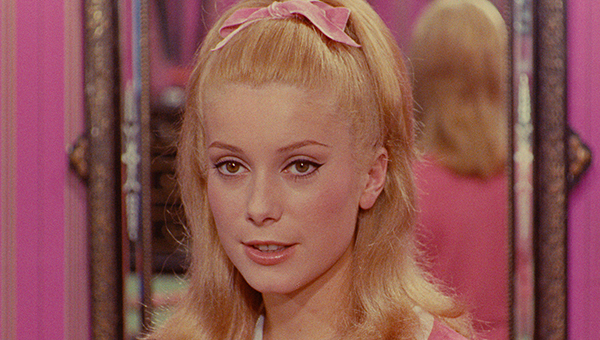The Umbrellas of Cherbourg
- 3 Jun 2020
- This 1964 movie directed by Jacques Demy is sung in French, but its appeal is universal.

COVID-19 and Kanopy have given me the chance to finally see Les Parapluies de Cherbourg (The Umbrellas of Cherbourg). I’ve wanted to see it ever since hearing Don Draper and Lane Pryce talk about it while drunk in Episode 403 of Mad Men. (It leaves Netflix next week). I saw it for the first time about two months ago. I had watch it over the span of a few days though, because I couldn’t stand it for extended periods.
This movie is less of a musical and more of an opera. All the dialogue is sung, but it’s written in prose instead of verse. The lines are more natural, but they rarely match the music. This general lack of structure in the dialogue is annoying and distracting. It’s no doubt a dealbreaker for some people. The vivid palette and Michel Legrand’s music are the best aspects of this movie.

Catherine Deneuve is radiant as Geneviève Emery in her breakthrough role. (It’s easy to see why Don Draper knows about her.) I like Nino Castelnuovo as Guy Foucher, too. The other cast members are also good, considering the corniness of the movie. The singing itself isn’t my issue; it’s the singing of speech instead of lyrics. I sensed that it was dubbed, but I was disappointed to learn that none of the on-screen cast did any singing.
The ending is bittersweet and makes the whole experience worthwhile. The theme music, which plays throughout the movie, is especially affecting in the final scene. The French-lyric version is “Je Ne Pourrai Jamais Vivre Sans Toi” (“I Could Never Live Without You”). The English-lyric versions are called “I Will Wait For You.” A rendition by Connie Francis is well known because of its use in the “Jurassic Bark” episode of Futurama.
I watched the movie again today, and I did it in one viewing. I noticed plot details that I had missed during my first viewing, partly because of the non-lyrical dialogue and partly because I watched with French subtitles. I now realize that the singing in key scenes matches the recognizable theme music; the first instance is “Devant Le Garage” (“In Front of the Garage”).
Despite its simplistic plot and unstructured dialogue, I like The Umbrellas of Cherbourg. I haven’t seen La La Land, but reading about their similarities doesn’t surprise me. They both have a winning combination of whimsical hope and realistic consequence. Visual panache and timeless music are the capstones.